Publications
Articles, publications, books, tools and multimedia features from the U.S. Institute of Peace provide the latest news, analysis, research findings, practitioner guides and reports, all related to the conflict zones and issues that are at the center of the Institute’s work to prevent and reduce violent conflict.
Peace Economics: Questions and Answers
"Peace Economics" authors Jurgen Brauer and J. Paul Dunne discuss their recent book on economic principles in violence-afflicted states. 1. What is peace economics? Peace economics is the branch of economics that studies the design of societies’ political, economic, and cultural institutions and their interacting policies and actions to prevent, mitigate, or resolve any type of latent or actual violent conflict within and between societies. 2. What topics are covered in the volu...
Praise for "Peace Economics"
Praise for Peace Economics “The effect of violence on economic progress is very strong, yet it has not received appropriate attention. Jurgen Brauer and J. Paul Dunne have performed a great service by combining general economic perspectives with case studies to survey economic growth in its broadest aspects, in particular stressing the role of internal and external conflict.” —Kenneth J. Arrow, Nobel Laureate and Joan Kenney Professor of Economics and professor of operations research, St...
USIP’s Work in Conflict Zones
David Smock, senior vice president for USIP’s Centers of Innovation, outlines some of the more salient points and experiences in the new USIP press publication, “Facilitating Dialogue: USIP’s Work in Conflict Zones.”
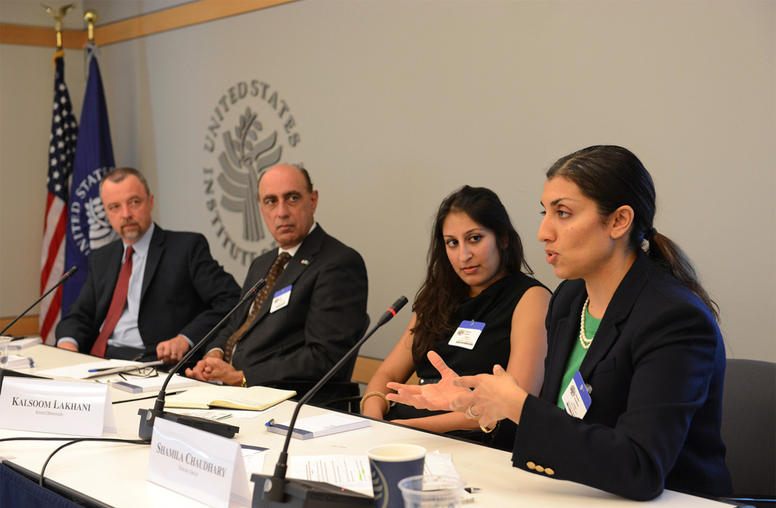
USIP Conference and Program Work Examine Youth’s Impact on Peace Prospects in Pakistan
The School of Public Policy at George Mason University (GMU) and USIP jointly organized a one-day conference analyzing the critical role that Pakistan’s “youth bulge” will play in influencing that strategically important country’s internal and regional peace and security.
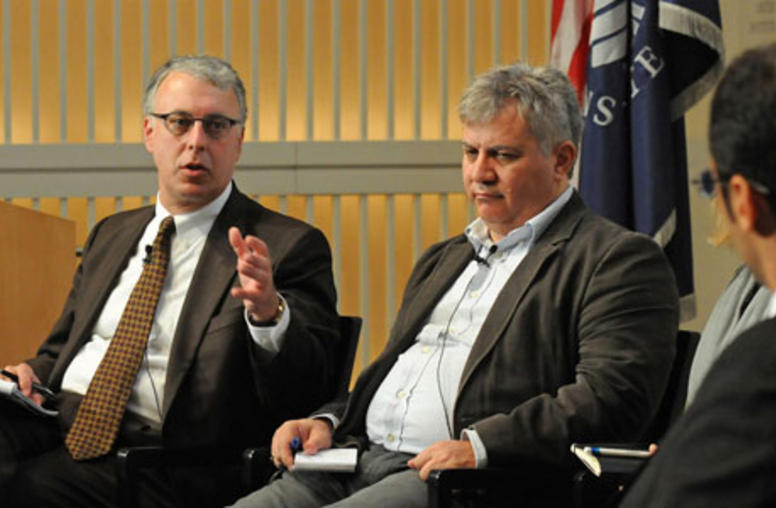
'Day After' Members Discuss Post-Assad Syria Transition at USIP
Several Syrian opposition activists engaged in a project known as “The Day After” appeared at the USIP on October 4 to discuss the challenges of achieving a post-Assad democratic transition amid intensifying violence, militarization of the revolution, sectarian tensions and repression by the Syrian regime.
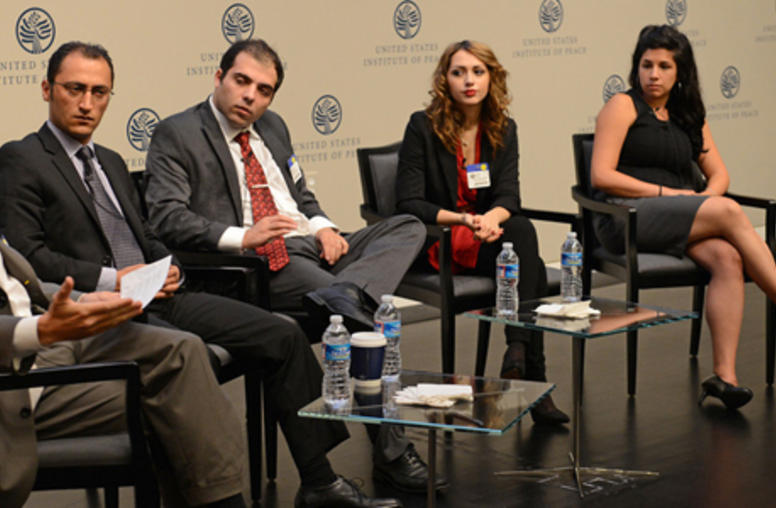
Event at USIP Looks at New Media in the Syria Crisis
The U.S. Institute of Peace (USIP), along with George Washington University, hosted an event on October 2 examining the role of new media in the ongoing Syrian crisis. “Groundtruth: New Media, Technology and the Syrian Crisis” featured activists using social media in their efforts to end Bashar al-Assad’s regime, as well as mainstream journalists reporting on the crisis and policy analysts.

Facilitating Dialogue
Facilitating Dialogue presents seven case studies of the United States Institute of Peace’s facilitated dialogue efforts in Iraq, Kosovo, Israel/Palestine, Colombia, Nigeria, and Nepal. Covering a variety of conflict situations and peacemaking efforts—from the tribal reconciliation in Mahmoudiya, Iraq, to a justice and security dialogue in Nepal—the cases tell stories of peacebuilding successes, efforts in progress, limitations on what can be achieved, and lessons learned.
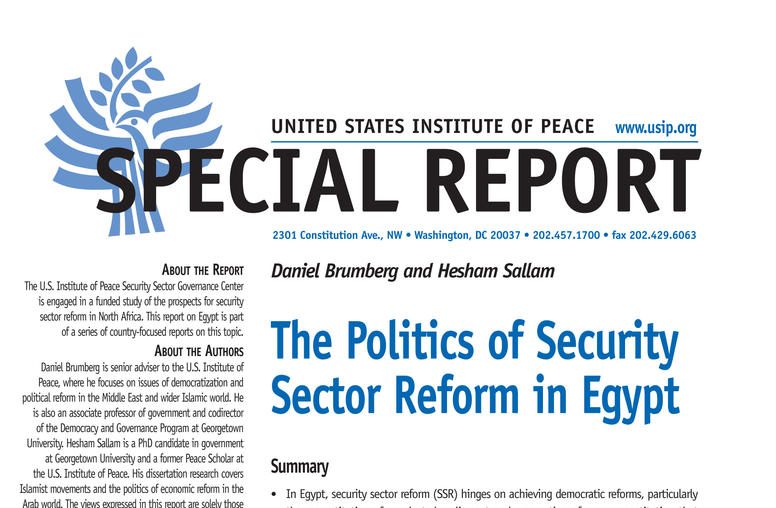
The Politics of Security Sector Reform in Egypt
By building a strong coalition around the need to reform Egypt’s military and interior ministry, Egypt’s political groups can move toward the critical goal of subordinating its military and security establishment to civilian authority.
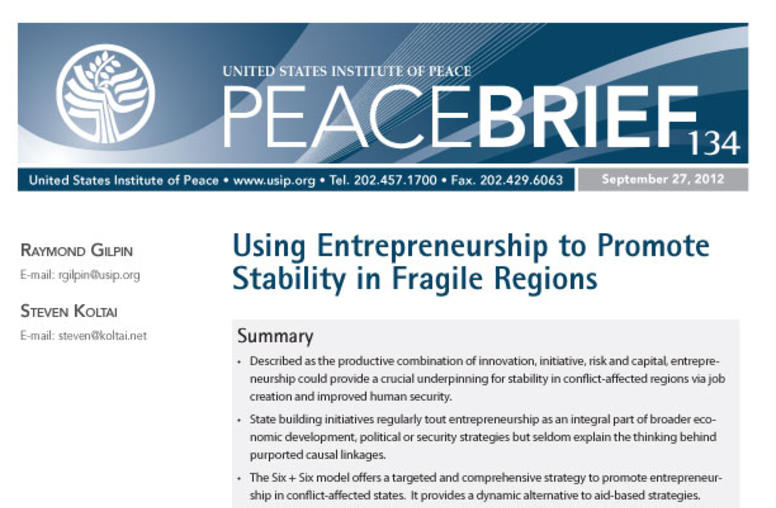
Using Entrepreneurship to Promote Stability in Fragile Regions
USIP’s Center for Sustainable Economies hosted a series of blogs on entrepreneurship in conflict-affected states on the International Network for Economics and Conflict from March to July 2012. This Peace Brief synthesizes the main conclusions and pertinent lessons for policymakers and practitioners.
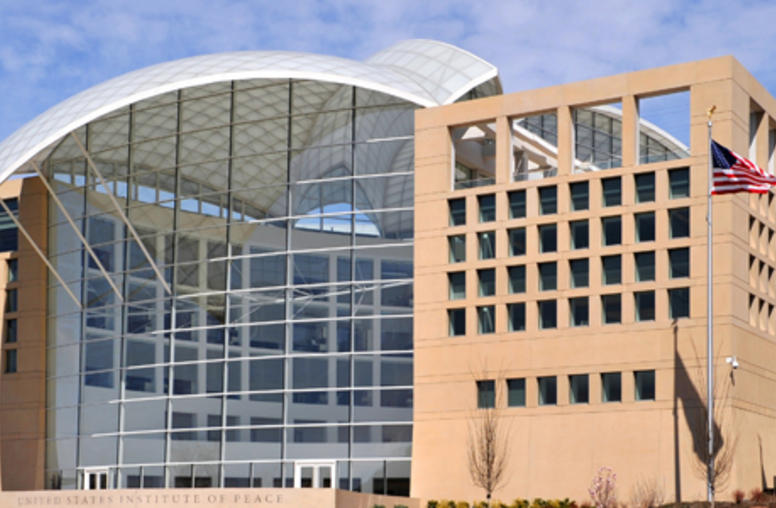
USIP, PSA Commence Congressional Briefing Series
The U.S. Institute of Peace (USIP) and the non-profit Partnership for a Secure America (PSA) on September 27 held the first meeting in their “Congressional Briefing Series--Topics on International Conflict Resolution and Prevention.”